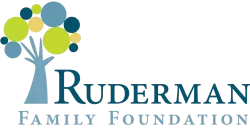Program Outline
During the four sessions, we will learn from each other and from field experts, collaborate with one another, and leave with practical skills and takeaways for our schools.
In each session, following a brief presentation, school teams will be assigned a small breakout room for a facilitated interactive workshop, enabling in-depth discovery and learning. To make the most out of this experience, please plan on attending ALL four sessions.
Session One | Accessing Support in Schools - Student, Teacher, and Administrator Perspectives
Wednesday, March 22, 2023
1:00 PM - 2:30 PM ET
10:00 AM - 11:30 AM PT
In this session we will explore the challenges of accessing support in schools for neurodiverse and mental health needs, from the perspective of students, teachers and administrators. Using specific case studies we will learn how to best create and access support in our schools.
Session Two | Navigating Difficult Conversations with Students, Parents and Teachers
Thursday, March 23, 2023
11:00 AM - 12:30 PM ET
8:00 AM - 9:30 AM PT
Featuring an honest and open panel discussion with a student, teacher, parent and administrator, we will review how to navigate difficult conversations from a range of perspectives. In small workshop groups, we will have the opportunity to practice and reflect on conversations with those who are in pain.
Session Three | Exploring Models of Collaboration in Schools - What Really Works?
Thursday, March 23, 2023
1:30 PM - 3:00 PM ET
10:30 AM - 12:00 PM PT
In this session, we will explore models of collaboration and management that work to address student needs. Using a self-assessment tool, school teams will consider the systems they have in place, further delineate unmet needs, and brainstorm solutions to enhance collaboration.
Session Four | The Potent Connection Between Emotions and Learning
Keynote Speaker: John D’Auria
Thursday, March 23, 2023
7:30 PM - 9:00 PM ET
4:30 PM - 6:00 PM PT
In this keynote presentation, John D’Auria will share current research that upends the traditional understanding that emotions get in the way of our important thought processes and only educators who are specially trained should pay attention to them. We now understand that emotions are at the foundation for deep learning. This is an important insight for school counselors, learning specialists, and leaders to recognize and promote. John will also focus on the central idea of balancing psychological safety with accountability in our classrooms and in our schools. That balance requires two key skills that John will discuss: listening in stereo, i.e., listening to understand the ideas and acknowledge the feelings of others and responding to wrong sounding ideas with curiosity.




